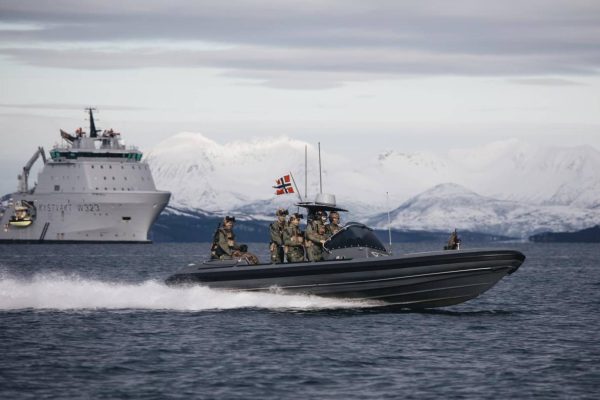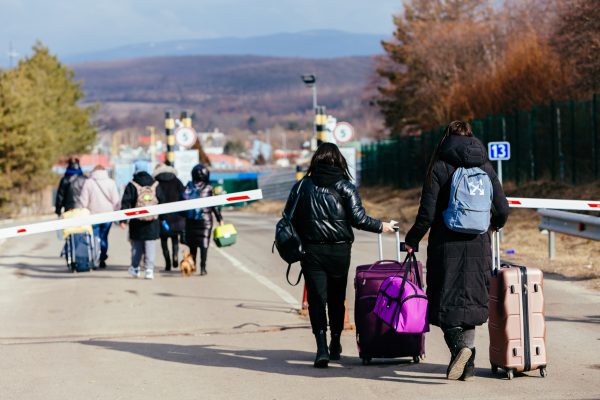Two things have become abundantly clear after 24 months of full-scale war: that peace can’t be achieved without a change of regime in Moscow; and that even Ukrainian victory on the battlefield is only one of many factors that could assist its downfall.
Because over the past two years, Putin’s Russia has become a formidably well-entrenched regime.
The Russian army has fully adapted to the war’s conduct, albeit through a strategy involving massive material and human losses, of troops rotting in the same trenches for months, institutionalized brutality among the officer corps towards the men, and an utter disregard for the plight of civilians and the laws of war.
The security services have regrouped after the humiliation of spring 2022 and have found a new sense of purpose in what they see as the third round of their fight with the West (following earlier engagements in the 20th century.)
In mainland Russia, the army, the military-industrial complex, and the security services have all been weaved into the fabric of society — from contributing to the sudden prosperity of the poorest Russian regions via funding to military enterprises and payments to contract soldiers, including the dead.
The security service has perfected its techniques for spreading fear among ordinary people and the bureaucracy. People have readopted old habits, such as talking in low voices about the war and politics in public places like public transport and coffee shops.
In two years, Putin has given Russians plenty of reason to believe he had still a large armory of measures to escalate repression. The death of Alexey Navalny announced on February 16, was merely another lesson that Stalin’s Gulag methods could see a triumphant return.
Two years of war also show that we all probably learned wrong lessons from the collapse of the Soviet Union. The widely accepted narrative was that the military defeat in the war in Afghanistan contributed to collapse because the army and the KGB, confused and humiliated, chose to wait and see while democratic forces took over in Soviet republics from the late 1980s.
The reality was much more complex. The KGB actively supported Perestroika because the security services wanted to end Communist party control. When things went too far for the taste of Lubyanka’s generals, they tried to oust Gorbachev and remove Yeltsin and failed.
But when Yeltsin’s democrats looked to settle scores, the KGB succeeded at diverting attention to the Communist party (imagine if you will that in East Germany, the German Communist party was prosecuted and the Stasi remained intact.)
It’s true that the army was humiliated by the withdrawal from Afghanistan in 1989, but the political role of the military remained very considerable even in the most tumultuous years of the 1990s.
It was not for nothing that Yeltsin chose a general, Alexander Rutskoy, as his vice-president, and that this officer enjoyed huge popularity because of his record in Afghanistan. Six years later, during the presidential election, Yeltsin’s biggest political rival was another general, and also a hero of the war in Afghanistan, Alexander Lebed.
This simply goes to underline that even a disastrous and humiliating war does not extinguish the role of generals in politics. Present-day generals understand that, as the more the war envelops society, the more important they become.
The security services would not give up their powers easily either — for them, this is a question of survival.
To win and sustain popular support for the war, Putin relied on awakening the basest feelings in the population — xenophobia towards Ukrainians; greed among contract soldiers and members of their families; hatred — mostly against gay people and liberals; and all that contained within a wrapper of fear.
In essence, he aimed to corrupt the soul of the Russian people and has achieved a depressing amount of success.
The result? In part, it will mean that when the time arrives for regime change, much of the population will feel frightened. They will be less likely to support any change because they will be complicit; it will not be possible to blame outsiders. They will nonetheless point to something other than themselves, to a political party, or the security services, or the dictator, and refuse to accept their own role.
These are grim tidings, but there is some good news as well.
Despite horrible pressure, arrests, and prosecution of dissent, Russian civil society has survived. Those thousands who have laid flowers for Navalny are an open challenge to the authorities who may choose, now or in the future, to throw them in jail for their defiance.
Russian society is alive in exile, too. There are live connections between émigrés (numbering a million or more) and those still in the homeland, and despite all its efforts the Kremlin has failed to break these ties. It has tightened internet censorship while persecuting and intimidating, but this has not been enough.
For now, in the dark midwinter of a long war, it is hard to imagine a brighter future. And yet, the seeds are there in Russian civil society. Ultimately, the real and sustainable possibility of a better future in Russia and sustainable peace in Europe lies in supporting Russian civil society, at home and abroad.
Andrei Soldatov and Irina Borogan are Nonresident Senior Fellows with the Center for European Policy Analysis (CEPA.) They are Russian investigative journalists, and co-founders of Agentura.ru, a watchdog of Russian secret service activities.
Europe’s Edge is CEPA’s online journal covering critical topics on the foreign policy docket across Europe and North America. All opinions are those of the author and do not necessarily represent the position or views of the institutions they represent or the Center for European Policy Analysis.





